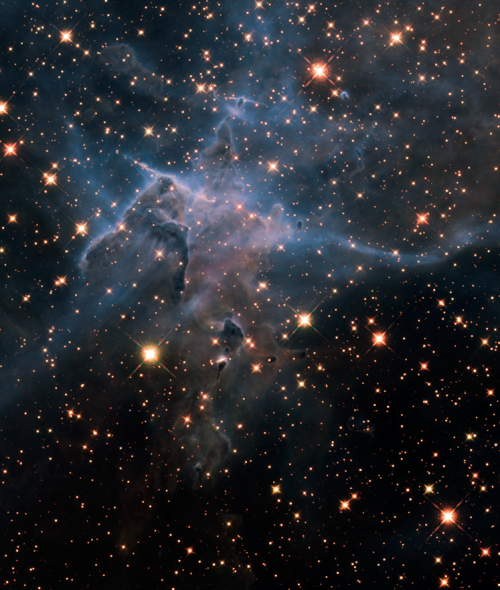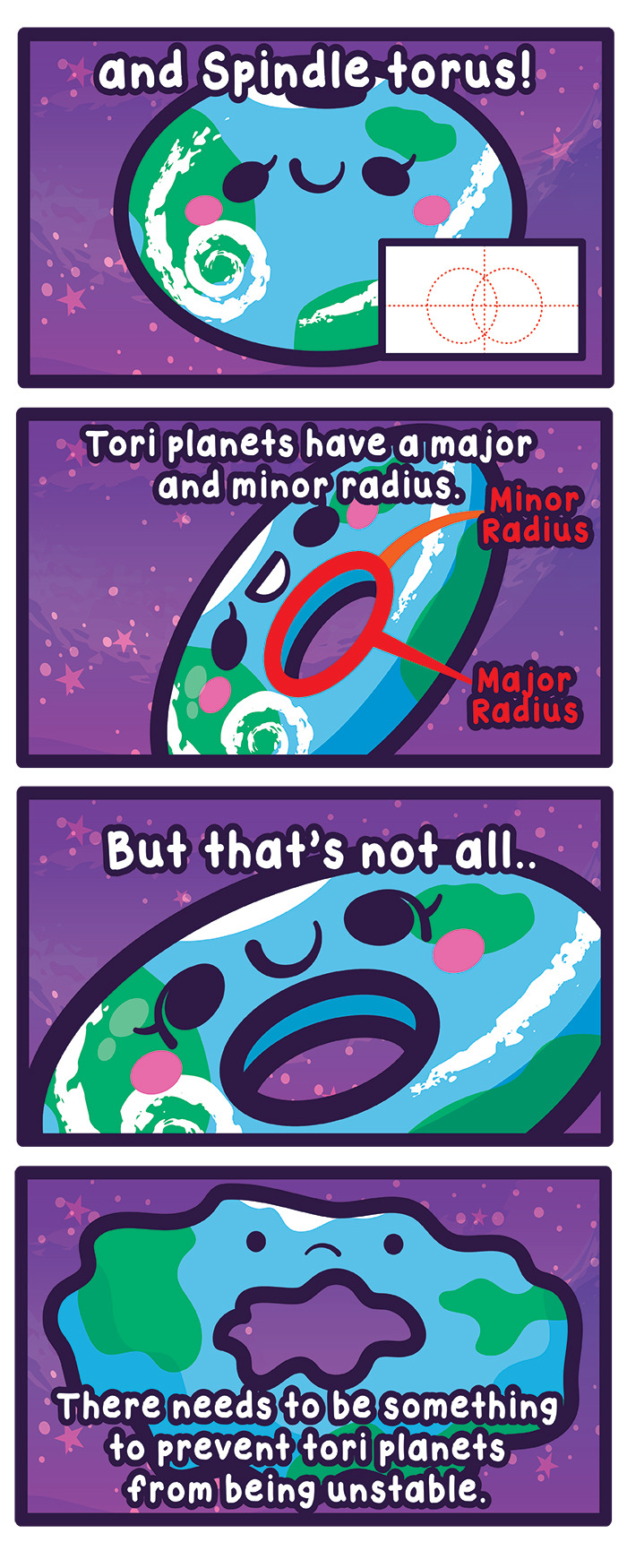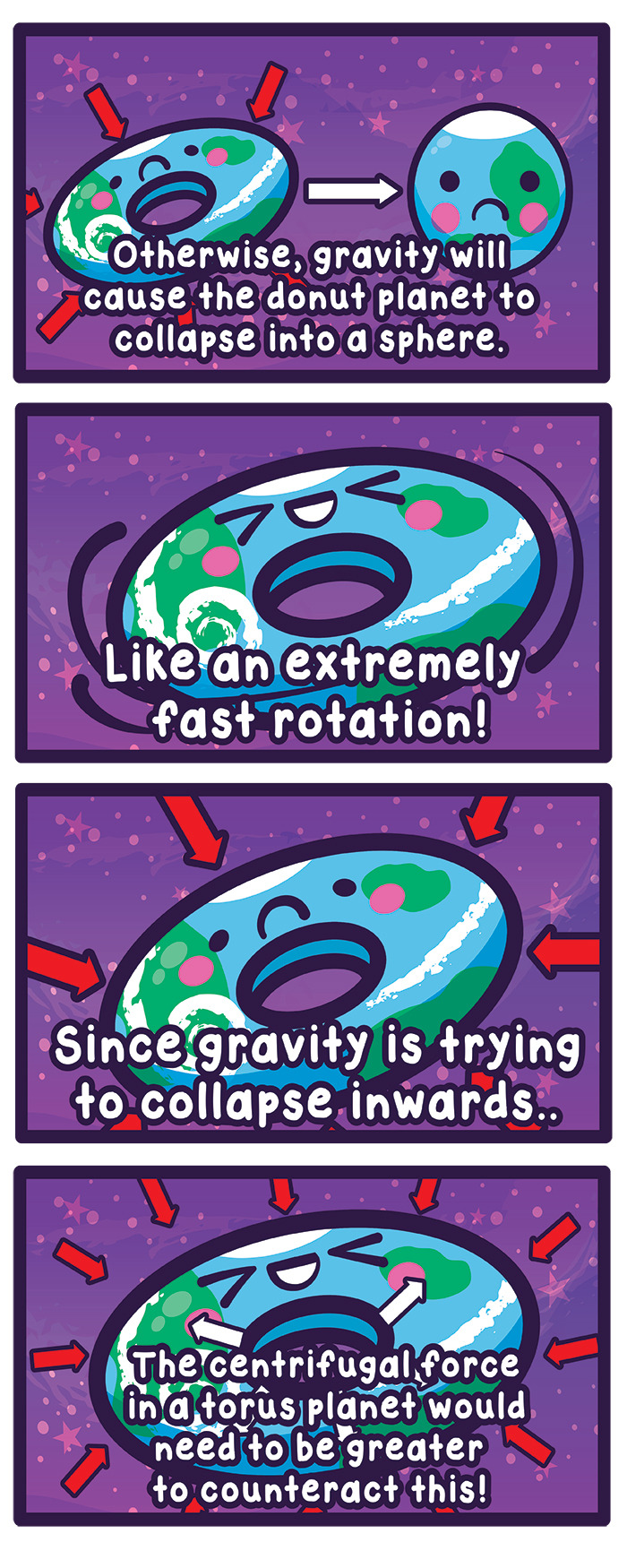Starry Greetings!








Starry Greetings!
Here is a comic on Asteroids!
https://www.space.com/51-asteroids-formation-discovery-and-exploration.html
More Posts from Night-hides-the-world and Others

The Mystic Mountain - HH 901
This is a NASA Hubble Space Telescope near-infrared-light image of a three-light-year-tall pillar of gas and dust that is being eaten away by the brilliant light from nearby stars in the tempestuous stellar nursery called the Carina Nebula, located 7,500 light-years away in the southern constellation Carina. The image marks the 20th anniversary of Hubble’s launch and deployment into an orbit around Earth.
The image reveals a plethora of stars behind the gaseous veil of the nebula’s wall of hydrogen, laced with dust. The foreground pillar becomes semi-transparent because infrared light from background stars penetrates through much of the dust. A few stars inside the pillar also become visible. The false colors are assigned to three different infrared wavelength ranges.
Credit: NASA, ESA
Enchanted Moon II by Nima Shayesteh
Wolf Moon by miguel aviles - Art of Visuals Collective
Moon on the horizon, Santa Barbara | California (by A. Klioutchnikov)
And unfortunately I can’t find credit for the final photo.





Thousands of Stars in the Orion Nebula
Close inspection of the 2006 Hubble Space Telescope color mosaic of the Orion Nebula (M42) reveals numerous treasures that reside within the nearby, intense star- forming region. Southwest of the Trapezium stars located in the center of the nebula, a stunning Hubble Heritage portrait captures a variety of intricate objects. Deeply contrasting areas of light and dark blend with a palette of colors mix to form rich swirls and fluid motions that would make even the best artists stand back and admire their work.
Visible slightly bottom right center is the star LL Orionis (LL Ori), originally release by the Hubble Heritage Project in 2002. The delicate bow shock that surrounds LL Ori points towards the stream of gas flowing slowly away from the center of the Orion Nebula, near the Trapezium stars located off the image to the upper left. Close examination of the ends of the bow shock show secondary shocks that are formed as a two-sided jet of gas flowing away from this forming star at high velocity strikes the stream of low velocity gas from the center. To the right of LL Ori, a ghostly veil of material hangs thick and dark, obscuring portions of the nebula behind it.
Credit: NASA/Hubble








The finale of hot objects month ends with something spectacular!
This week’s entry: Absolute Hot
http://twistedsifter.com/2016/07/absolute-zero-to-absolute-hot-infographic/






In this 2 part series, Planet X will teach you about the formation of donut planets using the power of physics!
http://io9.gizmodo.com/what-would-the-earth-be-like-if-it-was-the-shape-of-a-d-1515700296

This is a small portion of NGC 2023
Credit: Judy Schmidt
Candy Cane of Cosmic Proportions
Imagine how long it would take to eat a candy cane that’s a thousand trillion miles tall! 😋

Scientists peering into the center of our Milky Way galaxy found this 190-light-year tall “candy cane,” but (sadly) it is not a peppermint treat. It does contain other goodies, though. They have found huge collections of material, called giant molecular clouds, where stars are being born. And there are magnetic fields that might be evidence of a bubble from an outburst in our galactic center long ago.

The full image shows our galaxy’s center in infrared (blue), radio (red) and microwave (“minty” green) light. The picture essentially color codes different ways light is produced. The blue and cyan regions show us cool dust where star formation has just begun. Yellow features show more-established star “factories.” Red reveals places where electrically charged gas interacts with magnetic fields.
This image includes newly published observations using an instrument designed and built at NASA’s Goddard Space Flight Center in Greenbelt, Maryland, called the Goddard-IRAM Superconducting 2-Millimeter Observer (GISMO). It was used with a 30-meter radio telescope located on Pico Veleta, Spain, operated by the Institute for Radio Astronomy in the Millimeter Range headquartered in Grenoble, France. The image shows a region about 750 light-years wide.
Find out more about this image and what we can learn from studying star factories!
Make sure to follow us on Tumblr for your regular dose of space: http://nasa.tumblr.com
-
 larananoselavaelpie reblogged this · 3 months ago
larananoselavaelpie reblogged this · 3 months ago -
 lavandergilie liked this · 10 months ago
lavandergilie liked this · 10 months ago -
 ninjalurker liked this · 3 years ago
ninjalurker liked this · 3 years ago -
 shipwiththesnake liked this · 3 years ago
shipwiththesnake liked this · 3 years ago -
 kai-kat liked this · 4 years ago
kai-kat liked this · 4 years ago -
 smimon reblogged this · 4 years ago
smimon reblogged this · 4 years ago -
 walking-the-wire-love liked this · 4 years ago
walking-the-wire-love liked this · 4 years ago -
 tayefeth liked this · 4 years ago
tayefeth liked this · 4 years ago -
 redsector-a reblogged this · 4 years ago
redsector-a reblogged this · 4 years ago -
 space-luna reblogged this · 4 years ago
space-luna reblogged this · 4 years ago -
 clandestine88 liked this · 4 years ago
clandestine88 liked this · 4 years ago -
 sparklemiranda liked this · 4 years ago
sparklemiranda liked this · 4 years ago -
 chocolatewitchfox reblogged this · 4 years ago
chocolatewitchfox reblogged this · 4 years ago -
 dead-souls-deactivated177013 reblogged this · 4 years ago
dead-souls-deactivated177013 reblogged this · 4 years ago -
 dead-souls-deactivated177013 liked this · 4 years ago
dead-souls-deactivated177013 liked this · 4 years ago -
 pandoras-main-heart liked this · 4 years ago
pandoras-main-heart liked this · 4 years ago -
 akellard reblogged this · 4 years ago
akellard reblogged this · 4 years ago -
 spyingandtumbling liked this · 4 years ago
spyingandtumbling liked this · 4 years ago -
 hiiamluna liked this · 4 years ago
hiiamluna liked this · 4 years ago -
 goodomensguy liked this · 4 years ago
goodomensguy liked this · 4 years ago -
 demonizer0 liked this · 4 years ago
demonizer0 liked this · 4 years ago -
 queensoldfashionedloverboy liked this · 4 years ago
queensoldfashionedloverboy liked this · 4 years ago -
 home-of-the-ghost-lords liked this · 4 years ago
home-of-the-ghost-lords liked this · 4 years ago -
 insertgeniuspunhere liked this · 4 years ago
insertgeniuspunhere liked this · 4 years ago -
 czytacz reblogged this · 4 years ago
czytacz reblogged this · 4 years ago -
 czytacz liked this · 4 years ago
czytacz liked this · 4 years ago -
 rkyteq88 liked this · 4 years ago
rkyteq88 liked this · 4 years ago -
 halcyon79 reblogged this · 4 years ago
halcyon79 reblogged this · 4 years ago -
 halcyon79 liked this · 4 years ago
halcyon79 liked this · 4 years ago -
 no-limits-to-life reblogged this · 4 years ago
no-limits-to-life reblogged this · 4 years ago -
 no-limits-to-life liked this · 4 years ago
no-limits-to-life liked this · 4 years ago -
 just-e-n liked this · 4 years ago
just-e-n liked this · 4 years ago -
 gemstoneandtriangle liked this · 4 years ago
gemstoneandtriangle liked this · 4 years ago -
 nana-evans reblogged this · 4 years ago
nana-evans reblogged this · 4 years ago -
 nana-evans liked this · 4 years ago
nana-evans liked this · 4 years ago -
 andromeda1023 reblogged this · 4 years ago
andromeda1023 reblogged this · 4 years ago -
 andromeda1023 liked this · 4 years ago
andromeda1023 liked this · 4 years ago -
 deona-of-the-hearth liked this · 4 years ago
deona-of-the-hearth liked this · 4 years ago -
 studybuddystation reblogged this · 4 years ago
studybuddystation reblogged this · 4 years ago -
 sceptre-of-luminescence liked this · 4 years ago
sceptre-of-luminescence liked this · 4 years ago -
 culturalmochi liked this · 4 years ago
culturalmochi liked this · 4 years ago -
 whiskeythefishski liked this · 4 years ago
whiskeythefishski liked this · 4 years ago -
 nothingismyexistence liked this · 4 years ago
nothingismyexistence liked this · 4 years ago
Astronomy and the other wonders you witness when you look to the skies.
115 posts


